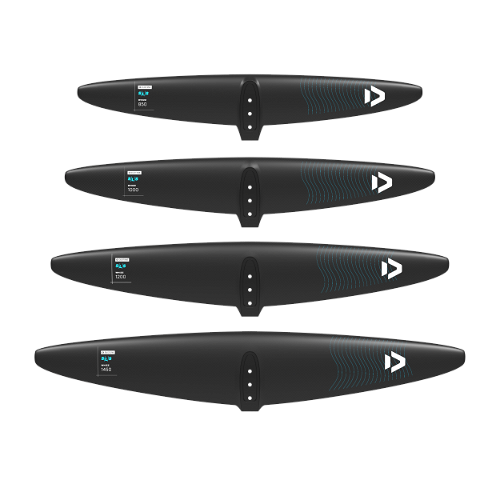Front Wing Crest D/LAB
PRONE / FREEFLY / WAKE / FOIL ASSIST
Front Wing Glide 2.0 D/LAB
Freeride Performance / Pump & Glide / Downwind
Front Wing Glide 2.0 SLS
Freeride Performance / Pump & Glide / Downwind
Front Wing Whizz SLS
PRONE / WAKE / FREEFLY
Wing Set Glide 2.0 D/LAB
Freeride Performance / Pump & Glide / Downwind
Wing Set Glide 2.0 SLS
Freeride Performance / Pump & Glide / Downwind
PARAWING FOILING FAQ
The right foil for Parawinging largely depends on the rider's weight and skill level. Generally, a larger foil should be used compared to traditional Wing Foiling. A Parawing is less effective to pump than a regular wing, so you need not only a slightly larger board for the starting process but also a larger foil.
Foils with a higher aspect ratio, similar to those used in Downwind Foiling, are particularly well-suited. Once the Parawing is retrieved, the foil should glide well and allow for effective pumping, enabling you to stay on the foil solely through the push of the waves.
There is no general rule for foil size when it comes to Parawinging; however, it is important not to choose a foil that is too small, especially at the beginning. A foil with an aspect ratio between 9 and 12 and an area between 800 and 1400 cm² is suitable for most riders.
A rider weighing 90 kg is well-advised to start with the Duotone Glide 2.0 1350, while a rider weighing 70-75 kg can also do very well with the Glide 2.0 900 and stay on the foil for an extended period after retrieving the Parawing. The ideal foil size depends heavily on the rider's weight, skill level, and the wave conditions. The lighter and more experienced the rider is, and the faster the waves, the smaller the foil can be chosen.
For more answers on this and other topics, you can find them here in our Help Center.
:grayscale(false):quality(10):blur(20))
:grayscale(false):quality(10):blur(20))
:grayscale(false):quality(10):blur(20))









